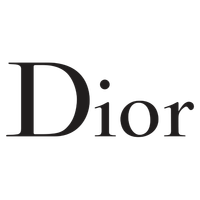
Christian Dior SE
PAR:CDI

Intrinsic Value
The intrinsic value of one
 CDI
stock under the Base Case scenario is
689.35
EUR.
Compared to the current market price of 444.4 EUR,
Christian Dior SE
is
Undervalued by 36%.
CDI
stock under the Base Case scenario is
689.35
EUR.
Compared to the current market price of 444.4 EUR,
Christian Dior SE
is
Undervalued by 36%.
The Intrinsic Value is calculated as the average of DCF and Relative values:

Valuation History
Christian Dior SE

Fundamental Analysis


Revenue & Expenses Breakdown
Christian Dior SE

Balance Sheet Decomposition
Christian Dior SE

| Current Assets | 47.7B |
| Cash & Short-Term Investments | 6.8B |
| Receivables | 8.8B |
| Other Current Assets | 32.1B |
| Non-Current Assets | 98.7B |
| Long-Term Investments | 3.1B |
| PP&E | 45.9B |
| Intangibles | 44.2B |
| Other Non-Current Assets | 5.5B |
Free Cash Flow Analysis
Christian Dior SE

| EUR | |
| Free Cash Flow | EUR |
Earnings Waterfall
Christian Dior SE

|
Revenue
|
84.7B
EUR
|
|
Cost of Revenue
|
-27.9B
EUR
|
|
Gross Profit
|
56.8B
EUR
|
|
Operating Expenses
|
-37.2B
EUR
|
|
Operating Income
|
19.6B
EUR
|
|
Other Expenses
|
-14.4B
EUR
|
|
Net Income
|
5.2B
EUR
|
CDI Profitability Score
Profitability Due Diligence

Christian Dior SE's profitability score is 62/100. The higher the profitability score, the more profitable the company is.

Score
Christian Dior SE's profitability score is 62/100. The higher the profitability score, the more profitable the company is.
CDI Solvency Score
Solvency Due Diligence

Christian Dior SE's solvency score is 55/100. The higher the solvency score, the more solvent the company is.

Score
Christian Dior SE's solvency score is 55/100. The higher the solvency score, the more solvent the company is.
Wall St
Price Targets
CDI Price Targets Summary
Christian Dior SE

Dividends
Current shareholder yield for  CDI is
.
CDI is
.
Shareholder yield represents the total return a company provides to its shareholders, calculated as the sum of dividend yield, buyback yield, and debt paydown yield. What is shareholder yield?
The intrinsic value of one
 CDI
stock under the Base Case scenario is
689.35
EUR.
CDI
stock under the Base Case scenario is
689.35
EUR.
Compared to the current market price of 444.4 EUR,
 Christian Dior SE
is
Undervalued by 36%.
Christian Dior SE
is
Undervalued by 36%.

























































 You don't have any saved screeners yet
You don't have any saved screeners yet